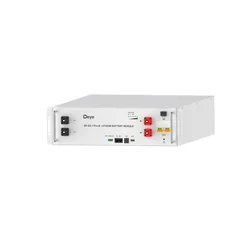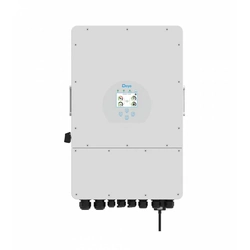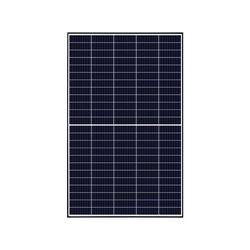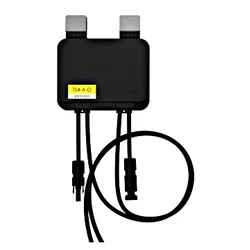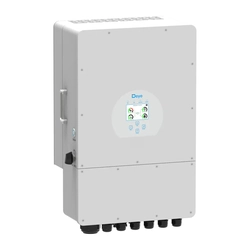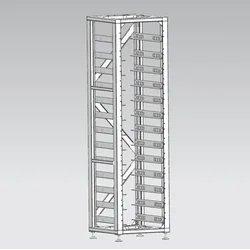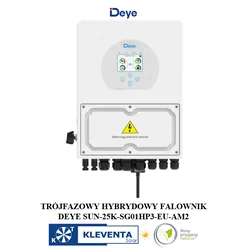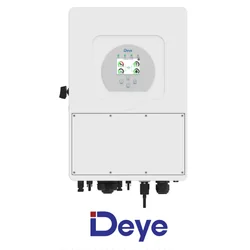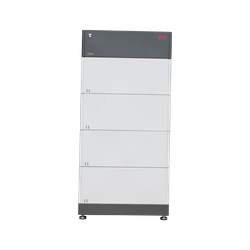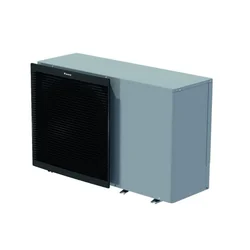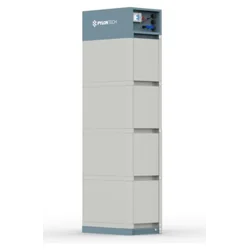Harnessing the power of renewables – a key to EU's climate neutrality by 2050
Harnessing the power of renewables – a key to EU's climate neutrality by 2050
The European Union's ambitious goal of achieving climate neutrality by 2050 has set the stage for a radical transformation of its energy sector. The role of renewable energy in this transition cannot be overstated. It is not only a matter of environmental sustainability but also a significant opportunity for industrial entrepreneurs. This article delves into the importance of renewable energy sources in helping the EU reach its target and the implications for industrial entrepreneurs.

VARIO stogo kablys fotoelektrai su dvigubu reguliavimu 140mm storis 1.4016
The imperative of renewable energy
The imperative of renewable energy
Renewable energy is the cornerstone of the EU's strategy to achieve climate neutrality. The EU's commitment to reduce greenhouse gas emissions to net-zero by 2050 necessitates a significant shift away from fossil fuels towards renewable energy sources such as wind, solar, and hydro. These sources are not only abundant and inexhaustible but also have a much lower environmental impact. The transition to renewable energy is not just an environmental imperative but also a socio-economic one. It has the potential to stimulate economic growth, create jobs, and improve energy security.

Specialus Bi-Metal M6x25 savisriegis varžtas trapeciniams tilteliams

Jinko fotovoltinis modulis 435W JKM435N-54HL4R-B 435W Full Black

DEYE baterija SE-G5.1-Pro-B 51.2V 100Ah 5.12kWh (žema įtampa)

Fotovoltinis modulis PV skydelis 410Wp Risen RSM40-8-410M Mono, pusiau supjaustytas juodas rėmelis

Hibridinis keitiklis Deye SUN-12K-SG04LP3-EU | 12KW | Trifazis | 2 MPPT | žemos įtampos baterija
The entrepreneurial opportunity
The entrepreneurial opportunity
The transition to renewable energy presents a significant opportunity for industrial entrepreneurs. The renewable energy sector is ripe for innovation and growth, with a vast array of technologies and solutions yet to be explored. Entrepreneurs can leverage this opportunity to develop new products and services, create new markets, and drive economic growth. Moreover, the transition to renewable energy is likely to spur demand for a range of ancillary services, from energy storage and grid management to energy efficiency and demand response, providing further opportunities for entrepreneurial activity.

DEYE energijos kaupimo aukštos įtampos baterija BOS-G 5,12kWh (aukšta įtampa)

Huawei SUN 2000-8KTL-M1, trifazis hibridinis keitiklis 8kW

Jinko Solar fotovoltinis modulis 435W 435 JKM435N-54HL4R-B FB visiškai juodas

DAŽYMAS SUN-25K-SG01HP3-EU-AM2 HIBRIDINIS INVERTERINIS DAŽAS 25 HV 3-FAZOWY
The path forward
The path forward
Achieving the EU's climate neutrality goal by 2050 is a daunting task, but it is also an opportunity to reshape our energy systems and our economies. The transition to renewable energy is a key part of this transformation. It requires not only technological innovation but also policy support, investment, and public acceptance. Industrial entrepreneurs have a crucial role to play in this transition. They can drive innovation, create jobs, and contribute to economic growth. However, they also need support from policymakers, investors, and society at large to overcome the challenges and seize the opportunities that this transition presents.

DEYE hibridinis keitiklis SUN-15K-SG01HP3-EU-AM2 3-fazowy
In conclusion, renewable energy is not just a solution to the climate crisis. It is also a catalyst for economic growth and entrepreneurial activity. The EU's goal of achieving climate neutrality by 2050 is a testament to the power of renewable energy and the opportunities it presents for industrial entrepreneurs. It is a call to action for all stakeholders to work together to harness the power of renewables and create a sustainable, prosperous, and climate-neutral future.











